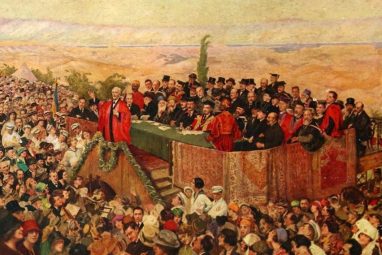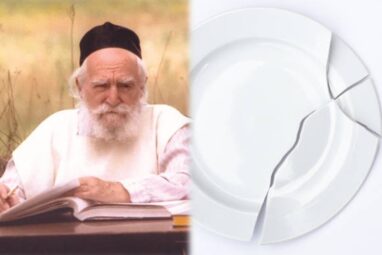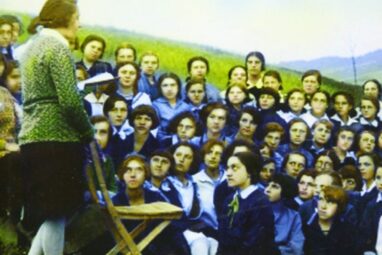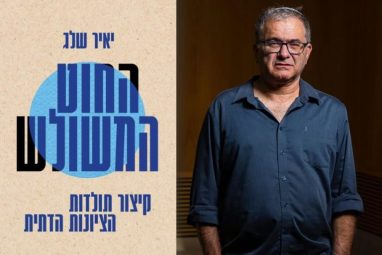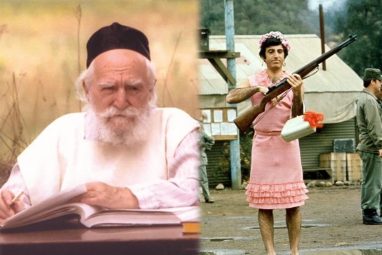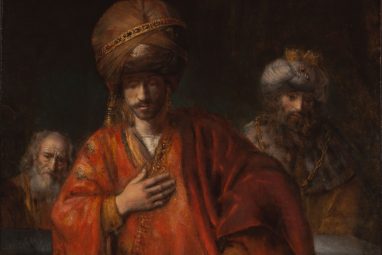April 3, 2025
Published by Tradition Online at April 3, 2025
With Passover around the corner our minds are on the many preparations required to join our families around the Seder Table—and yet, who can forget the events of five years ago, when so many of us were isolated, locked-down, sheltering in place during that COVID Pesach of 2020. We’re pleased to share this episode of Moshe Kurtz’s “Shu”t First, Ask Questions Later” podcast, examining the COVID Zoom Seder controversy. Kurtz is joined by Yehuda Halpert, who takes us back to the pandemic halakhic literature, identifies important topics that the Jewish world wrestled with during those unprecedented days, and shows how those questions are still resonant for Jewish practice in 2025.
April 1, 2025
Published by Tradition Online at April 1, 2025
On this day 100 years ago, the Hebrew University was formally inaugurated on Mount Scopus in Jerusalem. The event opened with an invocation delivered by Rav Kook. His courageous message minced no words about his true feelings regarding the Hebrew University and its place in the life of a revitalized Jewish yishuv in the Land of Israel. Revisit Shnayer Z. Leiman’s presentation of that speech in our “From the Pages of Tradition” column (Fall 1994).
March 30, 2025
Published by Tradition Online at March 30, 2025
The vagaries of the Jewish lunar calendar are such that erev Pesach coincides with Shabbat infrequently and with an irregular pattern. This year 5785 (2025) is one such occasion, giving rise to sundry halakhic complications. In advance of the alignment of Pesach following Shabbat in 1974 for the first time in two decades, Rabbi J. David Bleich offered guidance to our readers in his “Survey of Recent Halakhic Periodical Literature” column. Revisit the article and download his updated guide published for this year.
March 27, 2025
Published by Tradition Online at March 27, 2025
In this week’s Unpacking the Iggerot, Moshe Kurtz explores R. Moshe Feinstein’s opinions on male-female interactions by surveying his responsa on shidduchim, platonic relationships, co-education and more. It all begins with an eyebrow-raising question: Can someone steal a shidduch?
March 25, 2025
Published by Tradition Online at March 25, 2025
Tomorrow (March 26), the Jewish world marks Sarah Schenirer’s 90th yahrzeit. Sample relevant content in the TRADITION Archives which shows how the Bais Yaakov movement's revolutionary achievements were how they rewrote the script for Jewish girlhood, and prescribed that Orthodox primary education, including in Torah studies, was to be the standard experience.
March 20, 2025
Published by Tradition Online at March 20, 2025
“You may already be the winner of one million dollars!” In this week’s TRADITION Questions, Chaim Strauchler explains how your ability to determine the spending of 1 billion dollars differs from the old Publisher Clearing House Sweepstakes. He finds meaning in what this odd election for the World Zionist Congress says about the history of Zionism and modern Jewish identity.
March 18, 2025
Published by Tradition Online at March 18, 2025
In this episode of the Tradition Podcast, our associate editor Yitzchak Blau interviews author, researcher, and Makor Rishon columnist Yair Sheleg about his recent Hebrew book “HaHut HaMeshulash,” whose English title might be offered as “The Triple Chord: A Short History of Religious Zionism.” Rav Kook believed that Religious Zionism combines elements of religion, nationalism, and liberalism. Sheleg asks if contemporary Religious Zionism has remained loyal to this triple mission. If not, why not—and where has it fallen short?
March 13, 2025
Published by Tradition Online at March 13, 2025
From life-threatening scenarios to light-hearted Purim revelry, pinning down the precise parameters of the Biblical injunction against cross-dressing can be a tricky one. And whether it be in the American workplace or the Israeli frontiers, Moshe Kurtz has catalogued R. Moshe Feinstein’s array of rulings that have formed our understanding of this enigmatic halakha.
March 12, 2025
Published by Tradition Online at March 12, 2025
An early 18th-century Purim parody imagines Haman rotting in a jail cell, awaiting his execution, dictating his last will and testament to his ten beloved sons. Jeremy Brown surfaces this obscure text, and asks what its meaning might have been when composed in Livorno by David Polido, and what message it may contain for contemporary American Jewry.


